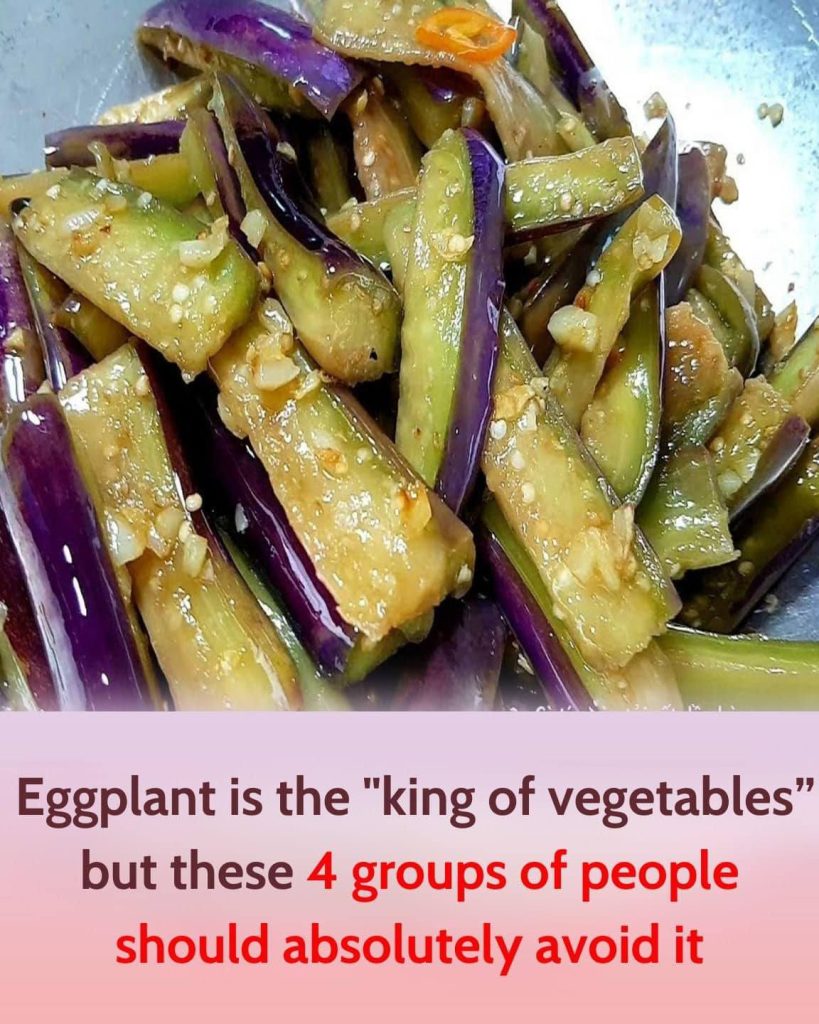ADVERTISEMENT
3. Individuals with Irritable Bowel Syndrome (IBS)
Eggplant is relatively high in fiber and contains compounds that can be difficult to digest for some individuals, particularly those with Irritable Bowel Syndrome (IBS). Consuming eggplant may lead to uncomfortable gastrointestinal symptoms in susceptible people.
Potential Digestive Issues:
- Abdominal pain and cramping
- Bloating and gas
- Diarrhea or constipation
Why Eggplant May Cause Problems: The high fiber content in eggplant can be a double-edged sword. While fiber is beneficial for digestion, excessive intake can lead to bloating and gas in individuals with IBS. Additionally, certain proteins in eggplant may irritate the gut lining, exacerbating IBS symptoms.
Dietary Adjustments: If you have IBS, consider limiting your eggplant intake or opting for smaller portions to see if your symptoms improve. It may also be helpful to prepare eggplant in ways that reduce its fiber content, such as peeling or cooking thoroughly to make it easier to digest.
4. People Taking MAO Inhibitors
Eggplant contains tyramine, a naturally occurring compound that can interact negatively with certain medications, particularly Monoamine Oxidase Inhibitors (MAOIs). MAOIs are a class of antidepressants used to treat major depressive disorder and other mental health conditions.
Risks of Combining Eggplant with MAOIs:
- Elevated blood pressure (hypertensive crisis)
- Severe headaches
- Nausea and vomiting
- Irregular heartbeats
Why the Interaction Occurs: MAOIs inhibit the enzyme responsible for breaking down tyramine in the body. Elevated levels of tyramine can lead to a dangerous increase in blood pressure and other severe side effects. While eggplant is not as high in tyramine as some other foods, the cumulative effect of consuming multiple tyramine-rich foods can pose significant health risks.
Medication Management: If you are prescribed MAOIs, it is crucial to consult with your healthcare provider about your diet. They can provide a list of foods to avoid or limit to prevent adverse interactions. In some cases, avoiding eggplant may be recommended as part of a broader dietary strategy to manage your medication regimen safely.
Conclusion
While eggplant is undeniably a nutritious and versatile vegetable, it is not suitable for everyone. Individuals with nightshade sensitivities, those at risk for kidney stones, people with Irritable Bowel Syndrome, and those taking MAO inhibitors should carefully consider their eggplant consumption. As with any dietary decision, it is essential to consult with healthcare professionals to determine what is best for your individual health needs. By being mindful of these considerations, you can enjoy a balanced and health-conscious diet that supports your overall well-being.
ADVERTISEMENT
